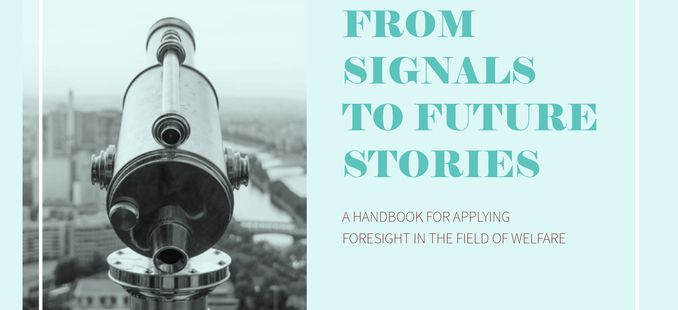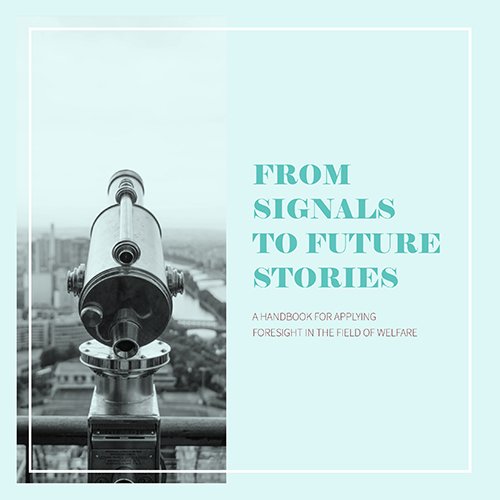
Foresight should be civic skill and part of political decision-making
Foreseeing the future is difficult, but not even trying to is a lousy option. What we do today affects what we can do tomorrow. From Signals to Future Stories – A Handbook for Applying Foresight in the Field of Welfare introduces thinking and operating models for preparing to encounter the future, available for anyone to apply.
The handbook is aimed for all those interested in foreseeing the future and reforming the welfare society.
"Naturally, not every aspect of the future is in our hands, as the future is generated through complex interdependencies and various feedback processes. The clearer foresightfulness is regarded as a process in which we simultaneously try to see and prepare for what is coming, the more useful foresight becomes", states Principal Lecturer Harri Jalonen from Turku University of Applied Sciences.
Foresight cannot be a privilege of futurologists, as the explosive increase in the amount of information available for everyone has made foreseeing possible for anyone.
"Foresightfulness can be considered a modern kind of civic skill. It is beneficial for everyone. In the process of foresight, the aim is to systematically analyse the unknown. Foresightfulness looks for signals of emerging chains of events and recognizes the present phenomena that presumably affect how the future develops", reminds Innovation Adviser Tuula Jäppinen from the Association of Finnish Local and Regional Authorities.
Future is made by people, not by systems
The handbook approaches the future from a human centric perspective instead of systems and structures.
"We wanted to illustrate foresightfulness to the handbook readers, which is why we have created future stories that picture people’s everyday life", says Project Manager Mira Lehti from Turku University of Applied Sciences.
The handbook portrays the lives of people in 2027: How does technology make the daily life easier for William, an 81-year-old pensioner? How does 50-year-old Heidi combine family life and the quickly changing requirements of working life? How does Assim, who has graduated as IT engineer, succeed in starting his own company in Finland?
Good future stories talk to people in the present time, because they combine plausibly macro level trends with micro level activity and the everyday life of people.
"The handbook is also suitable for decision-makers who carry out politics on different levels as well as for officials, organizational workers and researchers working with welfare issues. The future stories of the handbook were utilized already last year in a project that aims at foreseeing and developing the municipality of the future", Jäppinen explains.
The handbook will also be useful for companies, as many things that happen in future offer new business opportunities when processed with the correct insight.
The now published handbook is an edited version of the original publication from 2016. The new version includes, for instance, links to videos containing expert comments providing more in-depth insights on the topic of the handbook.
The handbook has been written as part of the InnoSI research project (2015–2017, see http://innosi.eu ), funded by the Horizon 2020 programme of the European Union. The collaboration between Turku University of Applied Sciences and the Association of Finnish Local and Regional Authorities continues and deepens in the new CoSIE project (see www.cosie-project.eu), also funded by the Horizon 2020 programme.
Download From Signals to Future Stories (pdf) for free.

